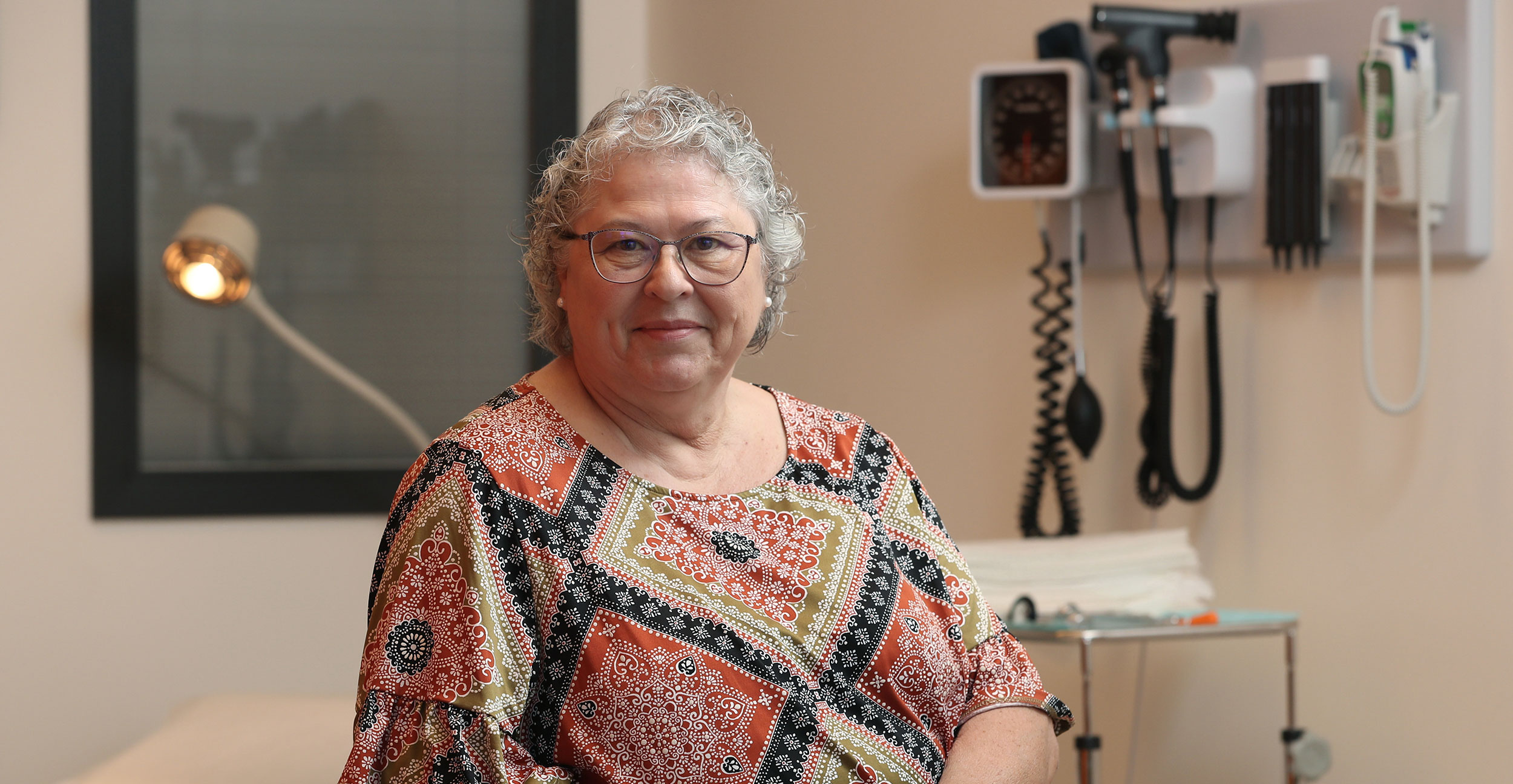
Instructor brings decades of experience to forensic nursing courses
Wednesday, November 2, 2022
Media Contact: Sara Plummer | Communications Coordinator | 918-561-1282 | sara.plummer@okstate.edu
For more than 30 years, Kathy Bell has worked in the field of forensic nursing, first at Hillcrest Medical Center and then the Tulsa Police Department, before adding instructor to her resume.
About 10 years ago, Bell started teaching two forensic nursing courses as an adjunct professor with OSU Center for Health Sciences School of Forensic Sciences. She teaches the Sexual Assault Nurse Examiners Course (SANE) and the Intimate Partner Violence Examiner Course in preparation for certification exams.
But forensic nursing encompasses more than just those two areas.
“Forensic nursing is a broad category,” she said, and includes everything from treating patients with injuries from weapons, to pediatric assaults, to those injured in vehicle collisions, as well as assaults and domestic violence.
“I cannot think of an area where a nurse wouldn’t encounter a patient who could have a forensic issue,” she said. “Every nurse needs to have some basic forensic nursing training.”
Right now, the two certification courses offered by the School of Forensic Sciences are 40-hour, self-paced online courses for registered nurses. The SANE course also offers a two-day clinical training component held in the Clinical Skills and Simulation Center on the OSU-CHS campus.
Bell said she would like to eventually expand the forensic nursing course selection and include a more broad and basic training course that covers more than just sexual assault and intimate partner violence.
“I cannot think of an area where a nurse wouldn’t encounter a patient who could have
a forensic issue. Every nurse needs to have some basic forensic nursing training.”
“All nurses would know a little bit about evidence collection, trauma-based care and community violence. Forensic nurses also may be asked to testify in court, so that could be an aspect of the training, and understanding the legal implications around consent and evidence collection,” she said.
Nurses must treat and interact with suspected perpetrators as well as victims, which is also an aspect of forensic nursing.
“The thing I hear about is the compassion of the nurse and that the nurse wasn’t judgmental,” Bell said. “It’s a kind and compassionate approach to patients.”
In the years since she first started working in forensic nursing, she has seen the number of certified nurses grow in Tulsa and across the state, but it’s still not to the level it needs to be, she said.
“The ideal is to have forensic nursing units at hospitals, like they have cardiac units,” she said, but until then, she’ll continue to teach the forensic nursing courses at OSU-CHS. “I love that part of it. Being a teacher is part of the job of being a nurse— you educate patients on their care and treatment all the time. I would like to get nurses educated in a lot of areas, because they’ll see a lot of different forensic patients.”
